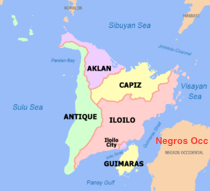ILOILO CITY— Eight bishops in Western Visayas and Romblon, including Jose Cardinal Advincula of Capiz, have decried the killing of nine leaders and members of the indigenous people’s group Tumandok in the December 30 police operations in Capiz and Iloilo provinces.
In a rare joint pastoral letter dated January 15, two archbishops and seven bishops of the dioceses on Panay, Negros and Romblon islands also called for a “thorough investigation by an independent body to ascertain what really happened” in the coordinated police operation in Tapaz town in Capiz and Calinog town in Iloilo.
“We, the bishops of Western Visayas (and Romblon), share the griefs and anxieties of our brothers and sisters of the Tumandok tribe in Tapaz, Capiz. We grieve with the families of the nine Tumandok tribespeople who were killed,” the prelates said.
“We share the sufferings of those arrested and of their families. We empathize with the fear and insecurities of those displaced by the atrocities. And we condemn in the strongest possible terms, all the killings and especially, the killings of our brothers– the Tumandoks,” according to their pastoral letter.
The pastoral letter, which will be read in holy masses in all churches in the eight dioceses on January 24, was signed by Advincula, Jaro Archbishop Jose Romeo Lazo, and Bishops Jose Corazon Tala-oc (Kalibo), Narciso Abellana (Romblon), Marvyn Maceda, (San Jose de Antique), Patricio Buzon (Bacolod), Gerardo Alminaza (San Carlos) and Louie Galbines (Kabankalan).
Aside from the nine tribe leaders killed, 16 others were arrested in Calinog, Iloilo and Tapaz, Capiz.
The Criminal Investigation and Detection Group of the Philippine National Police, which led the operation has insisted that those who died fired first at police operatives who were serving a total of 28 search warrants for firearms and explosives.
Police and military officials have also claimed that those killed were leaders of the Communist Party of the Philippines and New People’s Army.
They have also pointed out that Tapaz town is a “center of gravity” of the rebel movement in Panay where government troops and policemen have died in rebel attacks since the 1970s.
But the families of those killed and several village officials have refuted these claims.
They said the firearms were “planted” and those killed were unarmed and gunned down.
